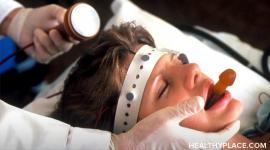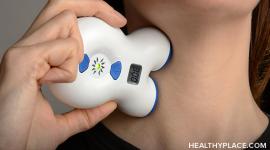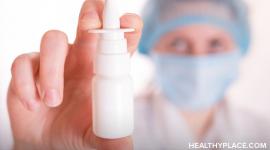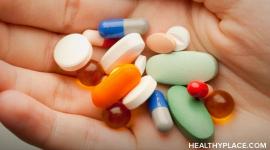What Is a Depression Relapse? Can You Prevent a Depression Relapse?

A depression relapse is the disheartening experience of having your depression symptoms return just when you think you’ve beaten them. With depression, relapse is frustratingly common. At least half of all people who have overcome depression experience another depressive episode, and of those, 80 percent will experience depression yet again; among people with a history of depression, the average number of recurrences ranges from five to nine across their lifespan (Levine, 2017). The good news is that depression relapse isn’t guaranteed. Read on to learn about depression relapse so you can minimize or prevent it altogether.
Depression can return at any time, even years after you left your first episode of depression behind. When it happens in the first four months after a depressive episode, it’s called relapse, and after that the official term is recurrence. Here, we’ll use the term “relapse” to refer to the reappearance of depression regardless of the timeframe.
Depression Relapse Triggers
It can be upsetting when depression relapse happens, and many people want to know why they’re once again living with depression. There isn’t a single definitive answer, but researchers do know that certain things can trigger the return of depression symptoms.
The most common trigger for depression relapse is stopping treatment, whatever your treatment may be. Doing so can prematurely halt the healing process and resume the depression. Ending depression treatment too soon is the most common trigger, but it’s not the only one.
The following list of depression relapse triggers can help you know what to watch for and avoid. It’s important to keep in mind that everyone is unique and what leads to renewed symptoms for one person might not affect the next person at all. Know yourself and your experience with depression so you can consider what might be triggering for you.
Common depression relapse triggers include:
- Medical conditions like diabetes, heart disease, and obesity
- Life-changing events such as a move, divorce, empty nest syndrome, losing a job, and others
- Death of someone close to you
- Personal trauma
- Traumatic events locally, nationally, or internationally
- Hormonal fluctuations in women, especially in puberty, pregnancy and afterward, and perimenopause
- Addictive behaviors, including, perhaps surprisingly, binge-watching TV (it increases stress and anxiety hormones and creates a sense of loss when the show is over)
- Poor social support
The more of these triggers you experience, the greater your chance of depression relapse. If you’ve had one or more triggers, how do you know if you’re relapsing? Certain signs indicate that your depression may be returning.
Depression Relapse Signs
When your depression begins to relapse, symptoms will begin to insidiously slither their way back into your life. When you notice any of these signs, it can be very helpful to see your doctor or therapist:
- Feeling down much of the time
- Feeling irritable, anxious, or both
- Lack of energy
- Disinterest in things you typically like
- Withdrawal or even complete isolation
- Avoiding people, places, and activities
- Feelings of worthlessness
- A strong sense of guilt
- Difficulty concentrating
- Memory problems
- Sleep problems
- Persistent aches and pains
With relapse, the depression symptoms you experience might be the same as those you had with your previous episode of depression, or they might be different. For example, perhaps you originally had insomnia but now you notice that you are sleeping excessively. That’s why being aware of the general depression relapse signs will help you know when you need to see your doctor.
Depression Relapse Prevention
A depression relapse can be treated, just like your previous episode of depression. Sometimes, it’s even possible to prevent a relapse from happening in the first place.
Preventing depression relapse is a matter of lifestyle and perspective: think in terms of continued wellness, or maintenance. When you embrace a depression prevention lifestyle, making mentally healthy choices and actively taking charge of your wellbeing become second nature.
It can be very effective to make a plan with your doctor, therapist, or both. Delineate things you will do to prevent a depression relapse, and commit to sticking to it (remember that stopping treatment is the most common relapse trigger). Whether it’s continuing antidepressants for maintenance, working with a therapist, or implementing a self-care and stress management program, following an intentional plan can help keep depression away.
These tips for preventing depression relapse can help you keep triggers from restarting depression:
- Make and keep social connections for support
- Develop a positive outlook to replace negative perceptions and thoughts
- Engage in activities for fun and to build self-confidence
- Do some physical activity every day
- Develop or maintain a sleep routine
- Practice mindfulness to quiet negative thoughts
Having depression return is disappointing. Depression relapse isn’t guaranteed, though. The most powerful aspects of depression relapse prevention are knowing the signs and triggers, noticing them within yourself, and taking action to diminish them.
APA Reference
Peterson, T.
(2021, December 30). What Is a Depression Relapse? Can You Prevent a Depression Relapse?, HealthyPlace. Retrieved
on 2026, January 15 from https://www.healthyplace.com/depression/depression-treatment/what-is-a-depression-relapse-can-you-prevent-a-depression-relapse



